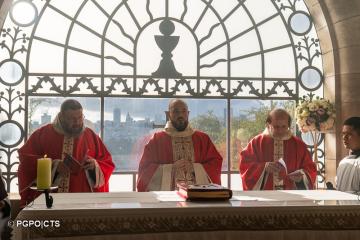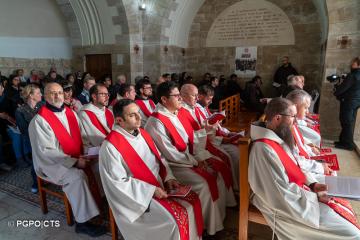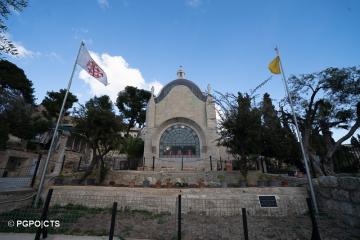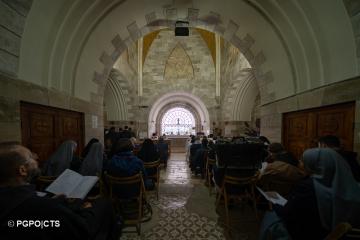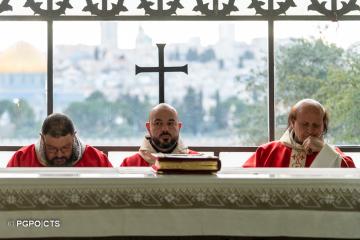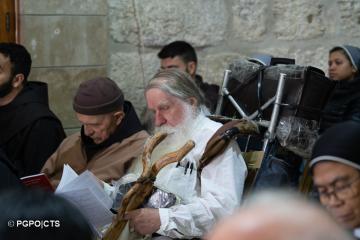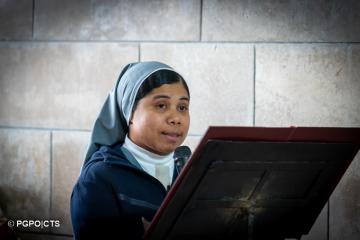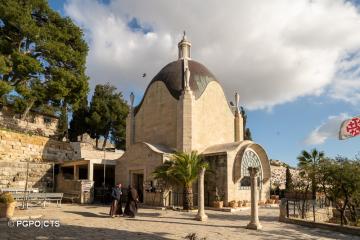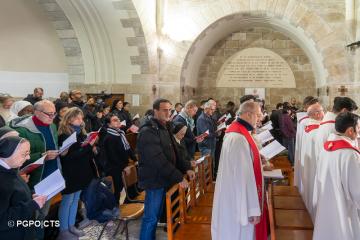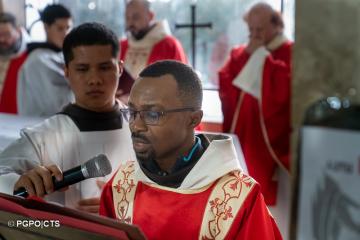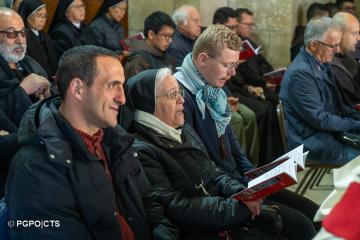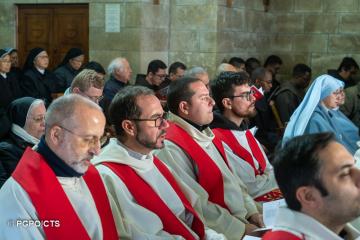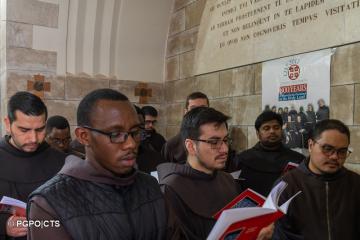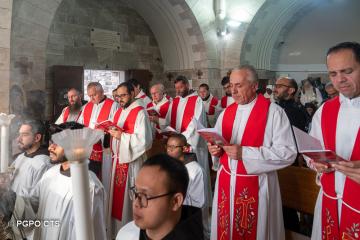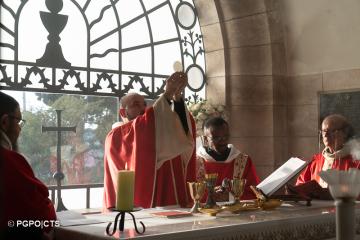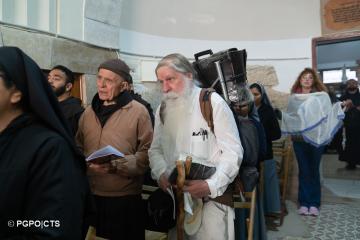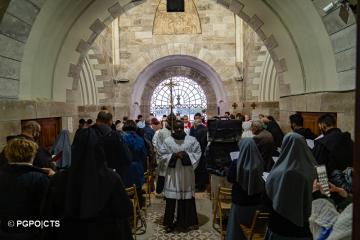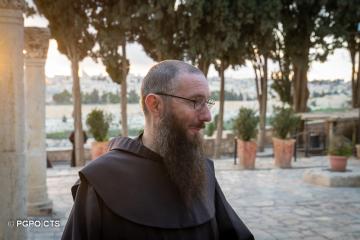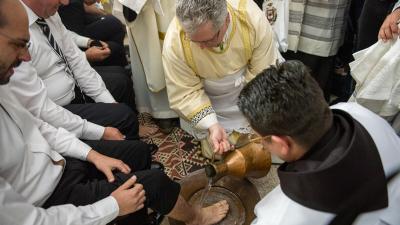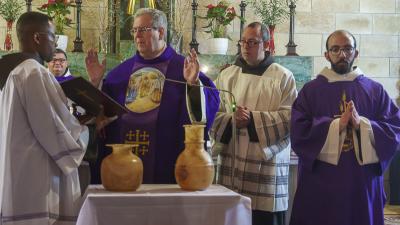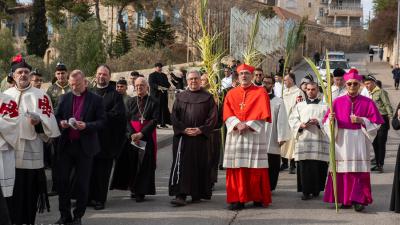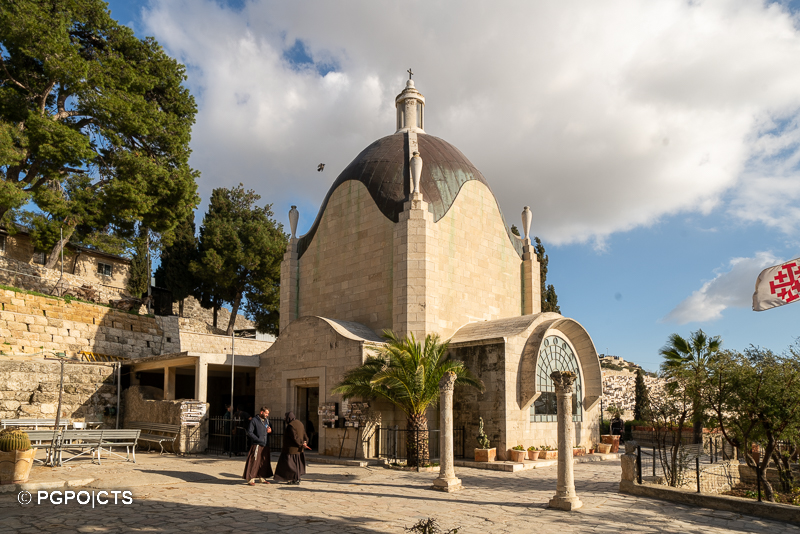
The traditional peregrinations that the friars of the Custody of the Holy Land and the community of local Christians make every year during Lent resumed on Wednesday 8th March. These are weekly appointments in the places which in Jerusalem most evoke the Passion of Christ.
The first part of the Lenten peregrinations took place at the sanctuary of Dominus Flevit, on the Mount of Olives. There, the evangelical episode when Christ, looking at Jerusalem, shed tears for the city and prophesied its destruction, is remembered (Luke, 19, 41-44)).
The secretary of the Holy Land, Fr. Alberto Joan Pari, celebrated the mass while Fr. Alessandro Coniglio, lecturer and secretary of the Studium Biblicum Franciscanum in Jerusalem, gave the commentary on the Word.
In his homily, Fr. Alessandro, taking the above episode from the Gospel according to Luke as his starting point, developed a reflection on the paradox of the grief of the God of the Bible and on the language of humanity that He expresses in interacting with men. The tears, the central event in the first reading - "Let my eyes stream with tears, day and night, without rest" (Jeremiah 14,17) and in the gospel "As he drew near, he saw the city and wept over it" (Luke 19, 41) -, gives us the disturbing image of a God very distant from the philosophical idea that would like the divine separated from the human. "God cries, the impassive, that is to say, he who cannot know passions in the way that man does and cannot change his soul, as takes place in men, precisely this God, that philosophy describes to us as without sensitivity, not subject to change, precisely He cries.".
Father Coniglio also pointed out how in the Gospel according to Luke, Jesus has the usual title of “Lord", Dominus in Latin, which translates the Hebrew "Adonai", i.e. speaking the ineffable Name of the Old Testament God. This, as well as creating a bridge between the New and the Old Testament, also implies that it was the Lord, i.e. Jesus as God and not only as a man, who cried. The Scripture thus gives us a God capable of crying and of having feelings like men but who nevertheless does not evade his divine identity, which in the episode in the Gospel, as in Jeremiah, is also expressed through the duty of doing justice: "the sin of man seems to break the very identity of God, lacerated between the duty of doing justice and the duty of loving without an end and without reserves those rebel sons who call on to himself such sadness for the sin.” However much this dual duty may suggest an ambiguous contradiction, in actual fact it communicates a single message, that of God’s love for us: "The judgement that God pronounces on Jerusalem, both in the Old and in the New Testament, does not express the Lord’s indifference for the fate of his people, for us, but, on the contrary, the passionate love he has for us."
In conclusion, Fr. Alessandro exhorted the faithful to rediscover the pathos of God: "God reveals himself in the passion he expresses, and this is not naive anthropomorphism, but a real expression of the concern that God has for humanity and men, and his involvement in the human story."
Filippo De Grazia


